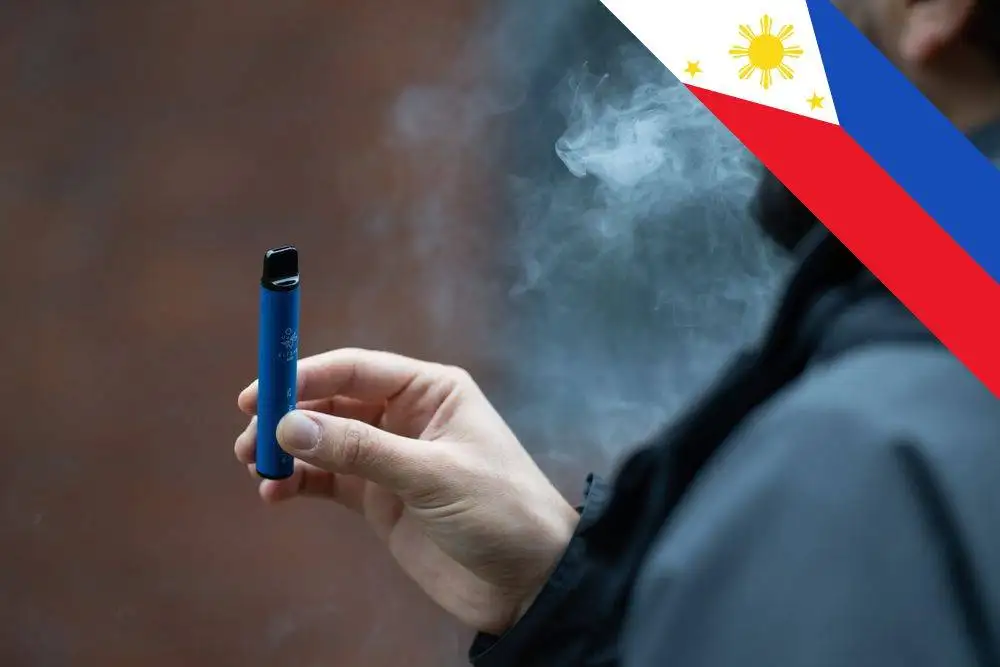The Philippines Launches Digital Crackdown: How BIR’s New QR System Will Reshape the Vape Industry
The Philippine Bureau of Internal Revenue (BIR) is deploying a high-tech weapon against illicit vape trade: a smartphone-readable QR code system enabling real-time product verification. Announced by Commissioner Romeo Lumagui Jr., this digital track-and-trace initiative targets the $17 million annual tax loss from smuggled and unregulated vapor products. For vape businesses—especially international sellers—this marks a pivotal shift in one of Southeast Asia’s fastest-growing e-cigarette markets.
Why the Philippines Is Prioritizing Vape Regulation
Skyrocketing Youth Usage: Adolescent e-cigarette adoption has surged from 7.5% (2021) to 40% in 2023, intensifying pressure for stricter controls. Flavored products—including fruit-flavored vapes—are particularly scrutinized for their appeal to minors.
Massive Tax Evasion: Before 2022, vapes faced zero excise taxes, creating fertile ground for illegal trade. Today, 30% of the market comprises unregistered products, costing ₱1 billion ($17 million) yearly. Recent raids confiscated ₱63 million ($1.1 million) in illicit goods, underscoring the crisis’s scale.
Regulatory Gaps: Retailers exploit loopholes by hiding uncertified stock. As Lumagui noted, even compliant businesses struggle: “We apprehend sellers who say, ‘Sir, we didn’t know these stamps were fake’”.
Inside BIR’s Digital Tracking System: A Game Changer for Compliance
The QR-based system—slated for 2025 rollout—democratizes enforcement:
- Consumer Empowerment: Shoppers scan codes to instantly validate product authenticity and tax compliance before purchasing.
- Supply Chain Transparency: Each QR tag traces a product’s journey from import to sale, flagging diversion points.
- Citizen-Led Enforcement: BIR incentivizes public reporting via rewards, complementing intensified field operations.
“If we address illegal vape products, it could substantially help us meet revenue targets,” Lumagui stressed. With legitimate imports surging from 11.2 million ml (2023) to 130.5 million ml (2024) after tax stamps were introduced, digital tools promise further gains.
The Expanding Regulatory Web: Taxes, Bans, and Stiffer Penalties
Beyond QR codes, the Philippines is weaving a tighter net:
Radical Tax Hikes: The Senate weighs replacing the current 5% annual tax increase with an “odd-even” scheme:
- Even years (2026+): 2% increase
- Odd years (2027+): 4% increase
Rationale? One vape pod (600 puffs) outlasts a cigarette pack (300 puffs) but is taxed lower per use. BIR now demands higher vape taxes than cigarettes to close this gap.
Flavor and Marketing Crackdowns:
- Online vape sales are banned entirely to limit youth access.
- Brands like Flava faced suspension for using celebrity endorsements and “enticing flavor descriptors”.
- Philip Morris was fined for promoting IQOS at a Steve Aoki concert, violating lifestyle marketing bans.
PS License Mandate: All vapes sold domestically require a Philippine Standard (PS) License by December 2024. Non-compliant sellers risk:
- 1st offense: ₱100,000 ($1,700) fine
- 3rd offense: ₱400,000 ($6,800) fine + 3-year jail term + license revocation
Only 9 vape brands (e.g., RELX, KLIQ) and PMI’s IQOS line currently hold PS certification9.
Industry Impact: Survival Strategies for Vape Businesses
For Foreign Sellers:
- Certify Early: Secure PS Licenses immediately—DTI’s OSMV processes are backlogged.
- Reformulate Flavors: Fruit-flavored vapes face additional restrictions; emphasize adult-oriented profiles (e.g., tobacco, menthol).
- Audit Supply Chains: Ensure QR code integration at manufacturing; BIR requires batch-level traceability.
Local Distributors: Expect stricter import documentation under new DTI rules, including:
- ₱150,000 ($2,550) surety bonds
- Excise tax returns with BIR stamps
- Warehouse ownership proofs
The Road Ahead: Digital Enforcement as the New Normal
The QR system exemplifies a global pivot toward track-and-trace solutions—but the Philippines’ approach is uniquely aggressive. With President Marcos personally endorsing crackdowns and ₱5.07 billion ($86 million) in vapes seized in 2024 alone, non-compliant players face extinction.
For compliant businesses? Opportunity beckons. As illicit products vanish, the certified vape market could grow to $345.6 million by 2030 (18.7% CAGR)9.
Proactive Steps for Market Access:
- Register with DTI’s OSMV (osmv@dti.gov.ph) for license guidance.
- Integrate QR tech into packaging now; BIR may fast-track compliant imports.
- Monitor tax reforms—the 2026 odd-even rate hike could reshape pricing strategies.
The message is clear: In the Philippines’ regulated vapor landscape, traceability is the new currency. Businesses adapting to this digital enforcement era will dominate; others risk becoming casualties of a ₱240.3 billion ($4.1 billion) war on illicit trade.
Discover more from Ameca-mall
Subscribe to get the latest posts sent to your email.

